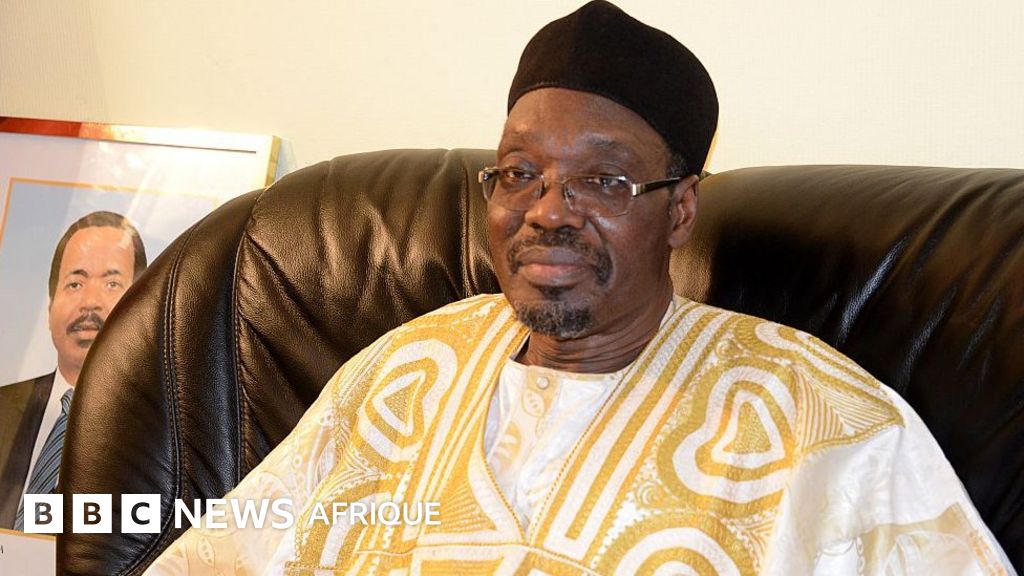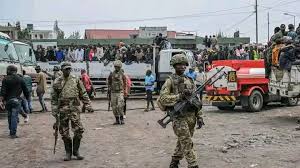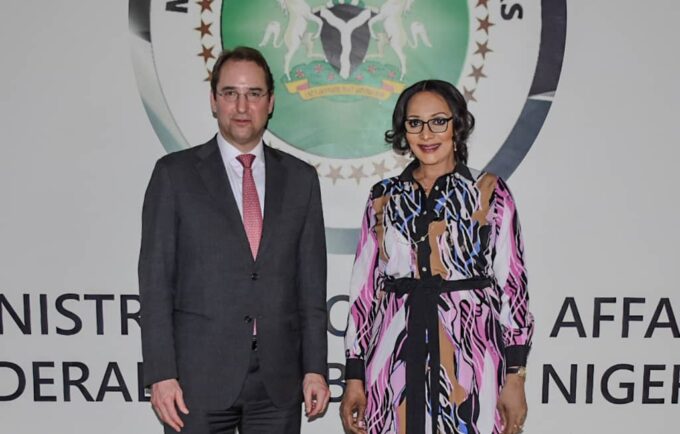In a major political shakeup ahead of Cameroon’s highly anticipated presidential election scheduled for October 2025, veteran minister and long-time ally of President Paul Biya, Issa Tchiroma Bakary, has resigned from government and announced his candidacy for the presidency. Tchiroma, who most recently served as Minister of Employment and Vocational Training, declared his intention to break the nearly five-decade dominance of Biya’s regime, calling it a system that has “broken public trust” and failed to deliver tangible benefits to the Cameroonian people.
Tchiroma, 75, made the bombshell announcement in a press conference on Wednesday, just four months before Cameroonians head to the polls. In a powerful rebuke of the administration he served for nearly 20 years, he stated: “A country cannot exist in the service of one man.” He further accused the Biya government of paralyzing institutions, marginalizing key regions, and entrenching a culture of authoritarianism.
President Paul Biya, who has ruled Cameroon since 1982 and is the world’s oldest sitting head of state at 92, has not yet confirmed if he will seek an unprecedented eighth term. Meanwhile, public concern continues to mount over deteriorating economic conditions, persistent insecurity, and lack of political freedoms. High unemployment, skyrocketing living costs, corruption, and ongoing violence from both separatist groups in the Anglophone regions and Islamist insurgents in the north have left the country deeply fractured.
Tchiroma, previously known for defending the regime in controversial moments—including a viral case in which he initially denied, then admitted, Cameroonian soldiers had executed women and children—has now turned his back on the government, criticizing its failure to evolve and unify the country. In his resignation letter and a follow-up 24-page manifesto, he pledged to “dismantle the old system” and rebuild trust with citizens through sweeping democratic reforms, including federalism and decentralization.
He particularly reached out to Anglophone Cameroonians, who have for decades complained of systemic marginalization under the Francophone-dominated administration. “Centralisation has failed,” Tchiroma said. “You do not need people to speak for you – you need to be listened to.” He promised a referendum on federalism that would devolve more authority to the country’s 10 provinces, a proposal long seen by many analysts as a potential solution to the Anglophone crisis.
Tchiroma also criticized the government’s suppression of dissent and media freedom, especially as the election approaches. His Cameroon National Salvation Front (CNSF) party has already faced pushback—just days after he declared his candidacy, the government banned all CNSF political activities in a sub-district of the Far North, where Tchiroma holds significant grassroots influence. This follows similar crackdowns on other opposition figures, including Maurice Kamto, the 2018 runner-up, who was recently placed under surveillance after a rally in Paris.
Parliamentary elections, which were due earlier this year, have been postponed until 2026, further fueling accusations that the Biya administration is undermining democratic processes to extend its grip on power.
Tchiroma’s surprise presidential bid has drawn mixed reactions. Some political analysts view him as a shrewd operator with insider knowledge of the regime’s weaknesses. “By positioning himself as the elder statesman who ‘saw the fire coming,’ Tchiroma is hedging that his break with Biya will be seen as bold—not opportunistic,” said Cameroonian broadcaster and political analyst Jules Domshe. “From economic fallout to youth unemployment, insecurity, and growing unrest in the North-West, South-West, and Far North, Cameroon is ripe for change.”
However, his credibility is under scrutiny due to his long-standing association with the Biya government. Critics argue that he represents the very system he now seeks to dismantle. “He cannot embody change… He was part of the system for too long. The youth do not trust him,” said Abdoulaye Harissou, a respected legal notary and former political detainee. Jean Michel Nintcheu, of the APC coalition, dismissed Tchiroma’s chances outright: “We don’t see Tchiroma as a potential winner.”
As the countdown to the October elections begins, Cameroon faces a pivotal moment. Whether Tchiroma can successfully distance himself from his controversial past and rally support remains uncertain. However, his defection has undeniably intensified the pressure on President Biya’s administration and added fresh energy to the conversation about political transition in a nation yearning for reform.














Leave a comment